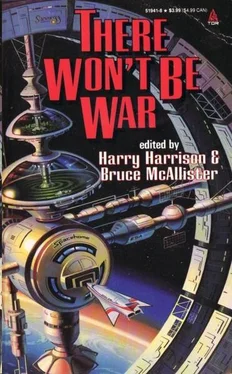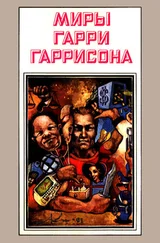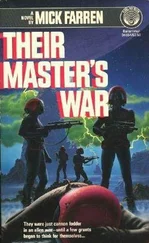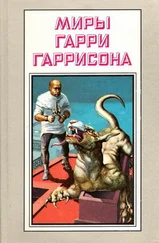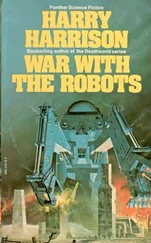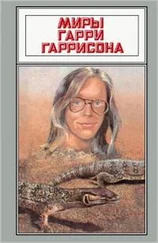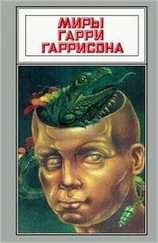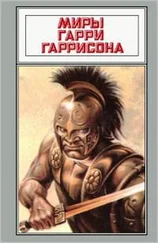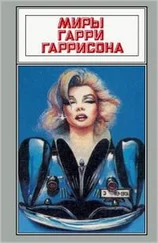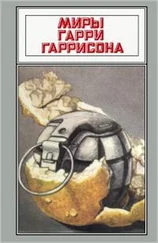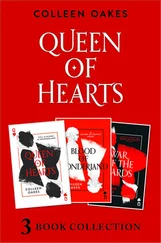The court-martial lasted two days. The verdict was guilty of disobeying orders in combat, and of giving aid and comfort to the enemy. The sentence was death by firing squad.
For most of his remaining days January rarely spoke, drawing ever further behind the mask that had hidden him for so long. A clergyman came to see him, but it was the 509th’s chaplain, the one who had said the prayer blessing the Lucky Strike’s mission before the took off. Angrily January sent him packing.
Later, however, a young Catholic priest dropped by. His name was Patrick Getty. He was a little pudgy man, bespectacled and, it seemed, somewhat afraid of January. January let the man talk to him. When he returned the next day January talked back a bit, and on the day after that he talked some more. It became a habit.
Usually January talked about his childhood. He talked of plowing mucky black bottom land behind a mule. Of running down the lane to the mailbox. Of reading books by the light of the moon after he had been ordered to sleep, and of being beaten by his mother for it with a high-heeled shoe. He told the priest the story of the time his arm had been burnt, and about the car crash at the bottom of Fourth Street. “It’s the truck driver’s face I remember, do you see, Father?”
“Yes,” the young priest said. “Yes.”
And he told him about the game he had played in which every action he took tipped the balance of world affairs. “When I remembered that game I thought it was dumb. Step on a sidewalk crack and cause an earthquake—you know, it’s stupid. Kids are like that.” The priest nodded. “But now I’ve been thinking that if everybody were to live their whole lives like that, thinking that every move they made really was important, then ... it might make a difference.” He waved a hand vaguely, expelled cigarette smoke. “You’re accountable for what you do.”
“Yes,” the priest said. “Yes, you are.”
“And if you’re given orders to do something wrong, you’re still accountable, right? The orders don’t change it.”
“That’s right.”
“Hmph.” January smoked a while. “So they say, anyway. But look what happens.” He waved at the office.
“I’m like the guy in a story I read—he thought everything in books was true, and after reading a bunch of westerns he tried to rob a train. They tossed him in jail.” He laughed shortly. “Books are full of crap.”
“Not all of them,” the priest said. “Besides, you weren’t trying to rob a train.”
They laughed at the notion. “Did you read that story?”
“No.”
“It was the strangest book—there were two stories in it, and they alternated chapter by chapter, but they didn’t have a thing to do with each other! I didn’t get it.”
“... Maybe the writer was trying to say that everything connects to everything else.”
“Maybe. But it’s a funny way to say it.”
“I like it.”
And so they passed the time, talking.
So it was the priest who was the one to come by and tell January that his request for a Presidential pardon had been refused. Getty said awkwardly, “It seems the President approves the sentence.”
“That bastard,” January said weakly. He sat on his cot.
Time passed. It was another hot, humid day.
“Well,” the priest said. “Let me give you some better news. Given your situation I don’t think telling you matters, though I’ve been told not to. The second mission—you know there was a second strike?”
“Yes.”
“Well, they missed too.”
“What?” January cried, and bounced to his feet. “You’re kidding!”
“No. They flew to Kokura, but found it covered by clouds. It was the same over Nagasaki and Hiroshima, so they flew back to Kokura and tried to drop the bomb using radar to guide it, but apparently there was a—a genuine equipment failure this time, and the bomb fell on an island.”
January was hopping up and down, mouth hanging open, “So we n-never—”
“We never dropped an atom bomb on a Japanese city. That’s right.” Getty grinned. “And get this—I heard this from my superior—they sent a message to the Japanese government telling them that the two explosions were warnings, and that if they didn’t surrender by September first we would drop bombs on Kyoto and Tokyo, and then wherever else we had to. Word is that the Emperor went to Hiroshima to survey the damage, and when he saw it he ordered the Cabinet to surrender. So ....”
“So it worked,” January said. He hopped around, “It worked, it worked!”
“Yes.”
“Just like I said it would!” he cried, and hopping before the priest he laughed.
Getty was jumping around a little too, and the sight of the priest bouncing was too much for January. He sat on his cot and laughed till the tears ran down his cheeks.
“So—” he sobered quickly. “So Truman’s going to shoot me anyway, eh?”
“Yes,” the priest said unhappily. “I guess that’s right.”
This time January’s laugh was bitter. “He’s a bastard, all right. And proud of being a bastard, which makes it worse.” He shook his head. “If Roosevelt had lived ....”
“It would have been different,” Getty finished. “Yes. Maybe so. But he didn’t.” He sat beside January. “Cigarette?” He held out a pack, and January noticed the white wartime wrapper. He frowned.
“You haven’t got a Camel?”
“Oh. Sorry.”
“Oh well. That’s all right.” January took one of the Lucky Strikes, lit up. “That’s awfully good news.” He breathed out. “I never believed Truman would pardon me anyway, so mostly you’ve brought good news. Ha. They missed. You have no idea how much better that makes me feel.”
“I think I do.”
January smoked the cigarette.
“... So I’m a good American after all. I am a good American,” he insisted, “no matter what Truman says.”
“Yes,” Getty replied, and coughed. “You’re better than Truman any day.”
“Better watch what you say, Father.” He looked into the eyes behind the glasses, and the expression he saw there gave him pause. Since the drop every look directed at him had been filled with contempt. He’d seen it so often during the court-martial that he’d learned to stop looking; and now he had to teach himself to see again. The priest look at him as if he were ... as if he were some kind of hero. That wasn’t exactly right. But seeing it ....
January would not live to see the years that followed, so he would never know what came of his action. He had given up casting his mind forward and imagining possibilities, because there was no point to it. His planning was ended. In any case he would not have been able to imagine the course of the post-war years. That the world would quickly become an armed camp pitched on the edge of atomic war, he might have predicted. But he never would have guessed that so many people would join a January Society. He would never know of the effect the Society had on Dewey during the Korean crises, never know of the Society’s successful campaign for the test ban treaty, and never learn that thanks in part to the Society and its allies, a treaty would be signed by the great powers that would reduce the number of atomic bombs year by year, until there were none left.
Frank January would never know any of that. But in that moment on his cot looking into the eyes of young Patrick Getty, he guessed an inkling of it—he felt, just for an instant, the impact on history.
And with that he relaxed. In his last week everyone who met him carried away the same impression, that of a calm, quiet man, angry at Truman and others, but in a withdrawn, matter-of-fact way. Patrick Getty, a strong force in the January Society ever after, said January was talkative for some time after he learned of the missed attack on Kokura. Then he became quieter and quieter, as the day approached. On the morning that they woke him at dawn to march him out to a hastily constructed execution shed, his MPs shook his hand. The priest was with him as he smoked 3 final cigarette, and they prepared to put the hood over his head. January looked at him calmly. “They load one of the guns with a blank cartridge, right?”
Читать дальше
